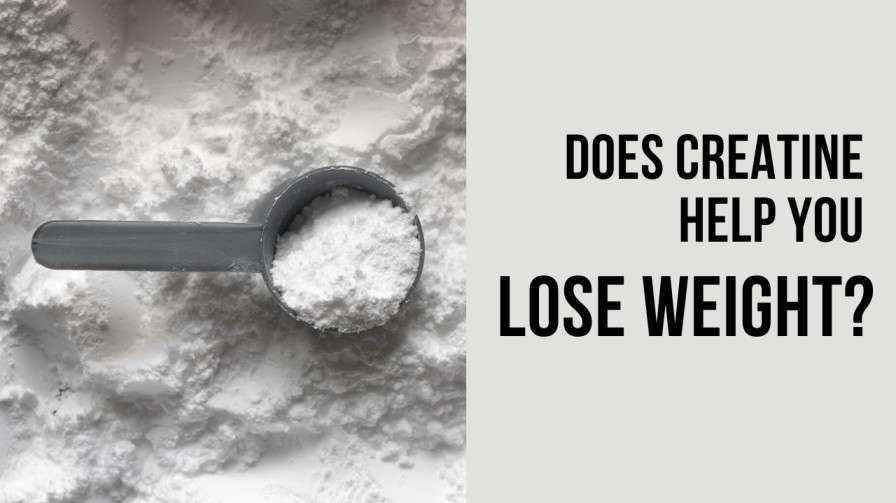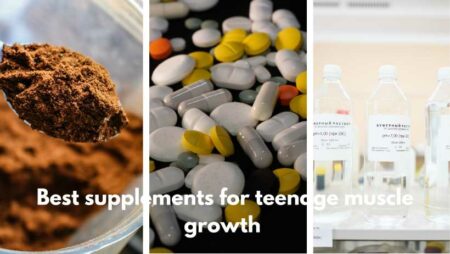Creatine is a popular supplement among athletes, bodybuilders, and other muscle-building individuals. But does it also aid with weight loss? Yes and no, respectively. Creatine can aid by boosting lean muscle mass, which in turn increases metabolism and burns more calories. It should be emphasized, however, that creatine does not immediately produce weight loss. It can only support a healthy diet and activity regimen that includes a calorie deficit.
Furthermore, consuming too much creatine without proper hydration and electrolyte balance might result in water retention, which can lead to weight gain. Individual needs and preferences should ultimately choose whether or not to utilize creatine for weight loss.
Table of Contents
What is Creatine and How Does it Work?
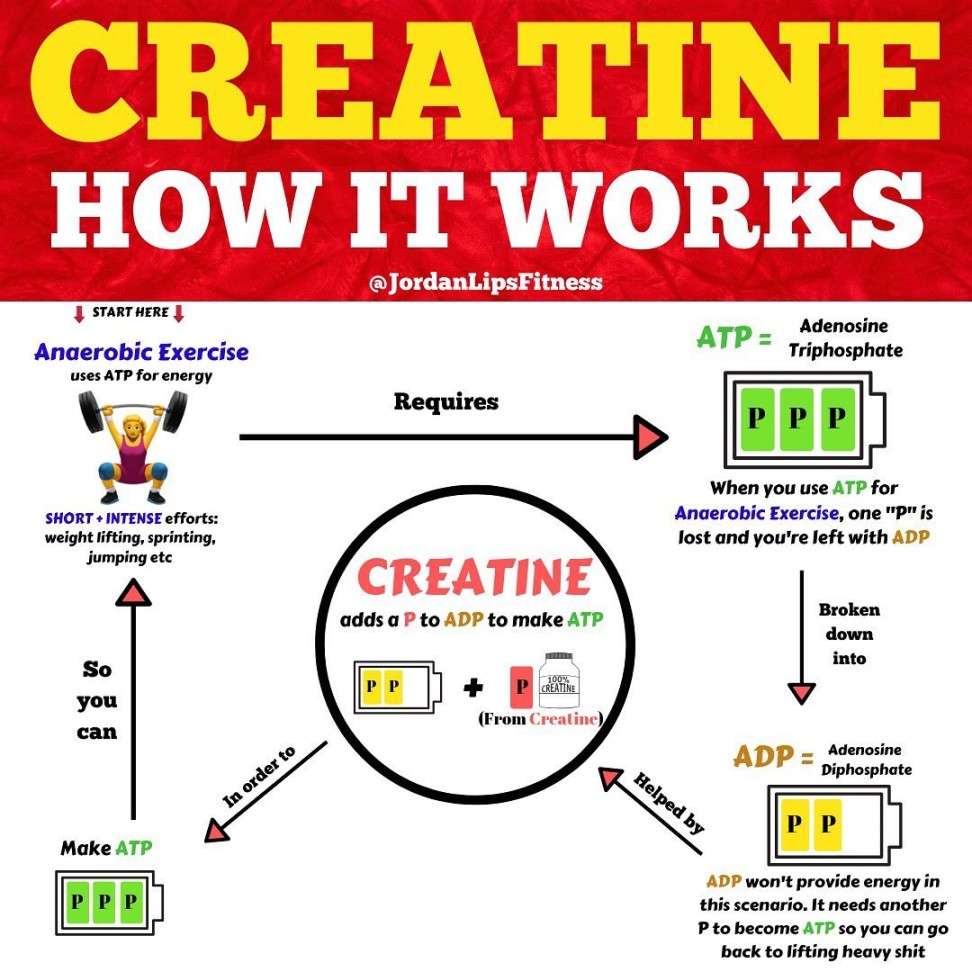
Creatine is an organic acid that naturally occurs in the body and helps to provide energy for muscle contraction. It is mainly found in the skeletal muscles, but can also be found in other tissues such as the brain, heart and kidneys. Creatine is synthesized from amino acids and stored in cells, primarily as creatine phosphate.
When performing activities such as weight lifting or sprinting, creatine phosphate breaks down into adenosine triphosphate (ATP), which provides energy for cell contractions. Creatine supplementation has been shown to improve athletic performance by increasing the production of ATP during short bursts of high-intensity exercise. It has also been studied for its potential benefits on cognitive function and neuromuscular diseases such as Parkinson’s disease.
Types of creatine
Creatine is a naturally occurring chemical that aids in the enhancement of energy, muscle strength, and endurance. Athletes and bodybuilders commonly utilize it as a performance-enhancing substance. Creatine comes in a variety of forms on the market today.
Creatine monohydrate is the most common and least-priced type of creatine. Creatine is also available in ethyl ester, hydrochloride, nitrate, and Kre-Alkalyn forms. Each variety has its own set of pros and drawbacks, so it’s crucial to investigate them all to see which one best suits your needs. Creatine ethyl ester boosts absorption, whereas creatine nitrate improves muscle hydration. The improved solubility of hydrochloride in water is well known, whereas Kre-Alkalyn gives longer-lasting benefits than other types of creatine supplementation. To avoid any potential side effects or undesirable reactions, all kinds of creatine should be taken exactly as advised.
Creatine and Weight Loss
The role of creatine in weight loss
Creatine is a naturally occurring substance found in the body that has been shown to aid with weight loss. It promotes muscle strength and endurance, resulting in more effective exercises and better performance during physical activities. Creatine can also aid in fat loss by boosting the amount of energy available for activity in the body. Furthermore, creatine boosts metabolism and aids in the preservation of lean muscle mass, which might contribute to higher fat burning over time. As a result, it is an excellent supplement for anyone trying to lose weight safely and effectively.
The ways by which creatine may help you lose weight
Creatine has been demonstrated in studies to increase muscle mass and strength, improve exercise performance, and decrease weariness. Creatine may influence weight loss in a variety of ways.
- One method is to improve the body’s ability to burn fat as fuel while exercising.
- It can also assist to reduce hunger by boosting the production of appetite-controlling hormones.
- Creatine can increase water retention, which can contribute to higher calorie burning as a result of a faster metabolic rate.
All of these facts together may contribute to helping you to lose weight.
Creatine supplementation’s effect on body composition and metabolism
Creatine supplementation has been demonstrated to be a safe and effective way of improving body composition and metabolism. According to research, it enhances lean muscle mass, lowers body fat, and belly fat and aids the body in producing more energy from food. It can also assist athletes to improve their performance by increasing their strength and power production during exercise. Furthermore, creatine supplementation may aid in the reduction of oxidative stress and inflammation throughout the body. This has the potential to boost general health as well as energy levels during activity. Finally, creatine looks to be a useful supplement for those trying to improve their body composition and metabolic health.
What are the health benefits of creatine?
Creatine has been thoroughly researched and connected to a variety of health benefits such as greater muscle growth and strength, higher exercise performance, improved brain function, increased energy levels, and improved cognitive function. Creatine also helps in the reduction of weariness during severe exercises, the improvement of recovery time after exercise or resistance training, the increase of lean body mass, and the prevention of brain illnesses such as Alzheimer’s disease. Furthermore, creatine may help people with certain medical disorders, such as diabetes or renal disease, maintain a healthy weight and muscle mass. Overall, creatine is a beneficial supplement for athletes looking to boost their performance, but it should be used carefully because taking too much of it might produce adverse effects.
Studies on Creatine and Weight Loss
Overview of available research on creatine and weight loss
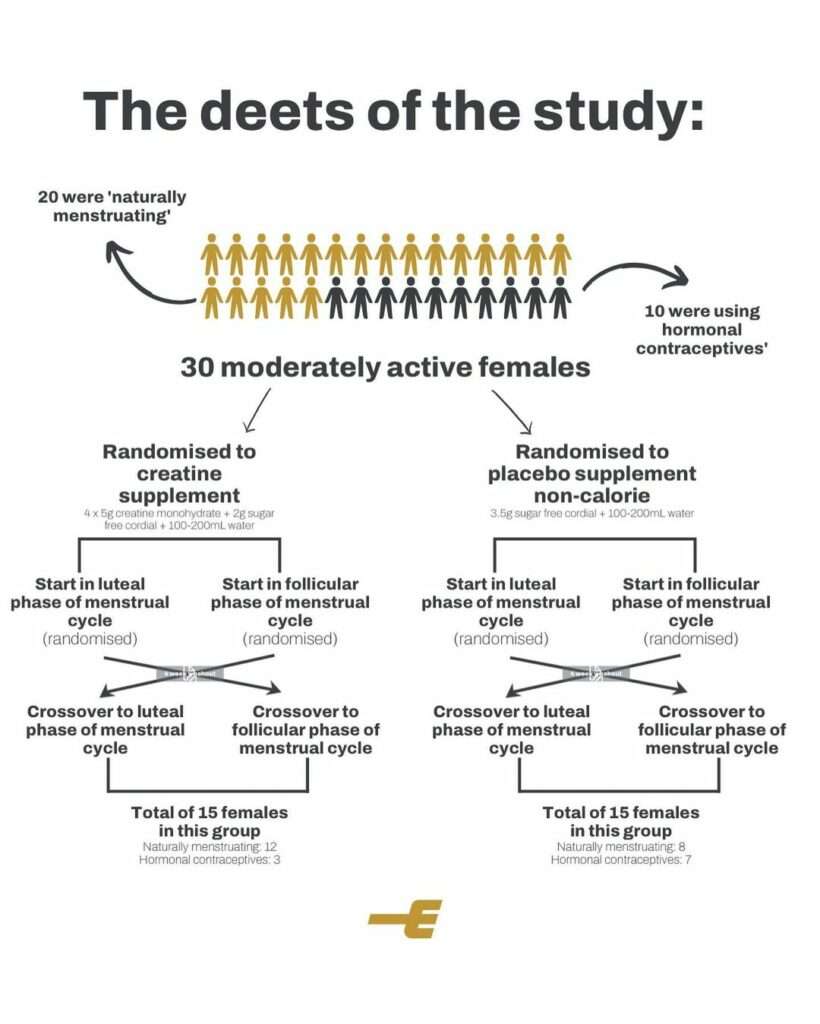
Creatine has received a lot of attention for its possible effects on muscular growth, strength, and endurance. Creatine may also help with weight loss, according to new studies. Creatine supplementation has been shown in studies to improve body composition by increasing lean muscle mass and decreasing body fat. Additionally, several research has shown that creatine supplementation increases metabolic rate. This increased metabolic rate may lead to more calorie burning, resulting in greater weight loss over time. Overall, the data support that using creatine as part of a comprehensive weight management approach that includes exercise and appropriate eating habits can contribute to improvements in body composition and weight loss.
Dosage and Safety Concerns
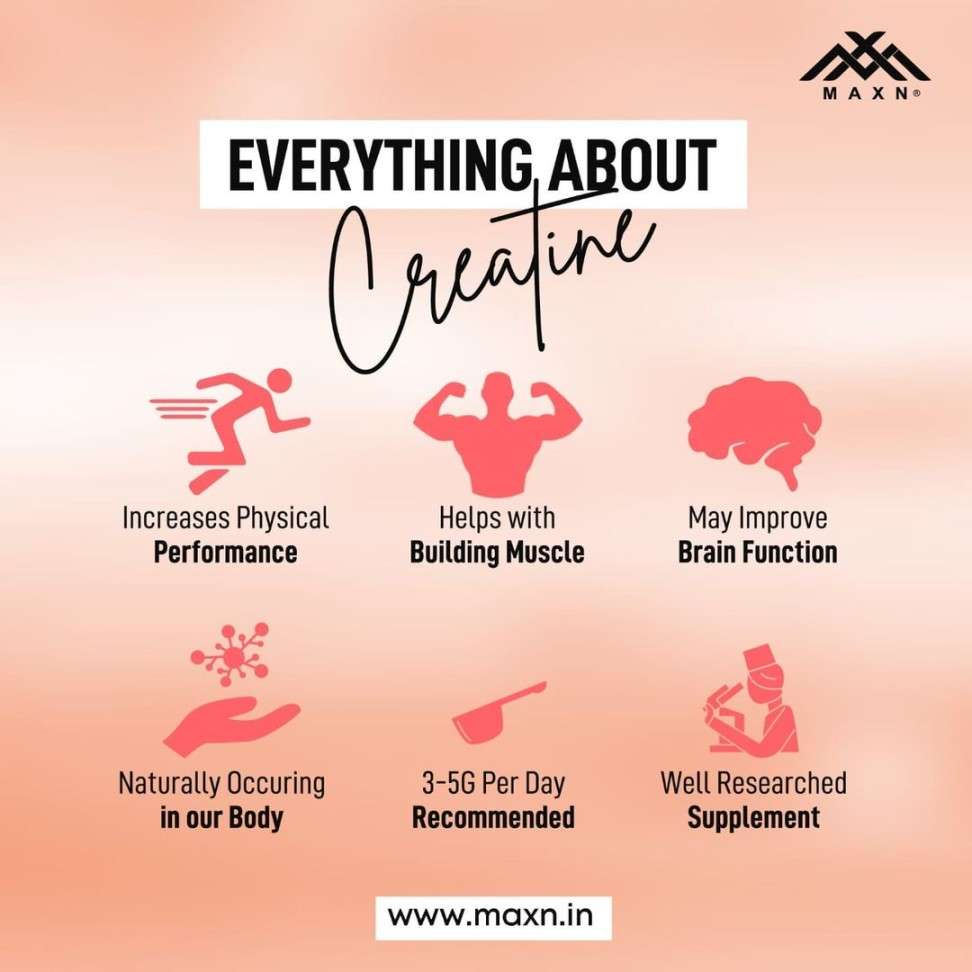
Recommended dosages for creatine supplementation
Creatine supplementation is an efficient method of increasing performance and muscle mass. To get the most out of creatine supplementation, it is critical to understand the suggested amounts. For optimal effects, a daily intake of 3-5 g of creatine monohydrate is recommended. When first beginning out with creatine supplementation, it is advisable to start gently and with modest amounts (3-5g per day) before gradually building to bigger doses (5-10g per day). Furthermore, it is recommended that you cycle your creatine use by taking regular breaks throughout the course of your dosage to avoid becoming overly reliant on this supplement. Following these guidelines can help you get the most out of your creatine supplementation.
Potential side effects of creatine
Creatine is a substance that can help you gain muscle mass and strength. While it is generally regarded as safe for most people, it does have certain potential side effects and safety issues. Side effects include included upset stomach, cramps, thirst, disorientation, and weight gain. Furthermore, several studies have connected high creatine dosages to renal damage or an increased risk of heart disease. As a result, it is critical to address any potential hazards with your doctor before taking creatine supplements to verify that you are doing so safely.
Is creatine safe to consume?
Creatine is a naturally occurring chemical present in foods such as red meat and fish. It can also be purchased as a dietary supplement. Creatine has been thoroughly investigated for its effects on athletic performance and strength, and when taken at appropriate dosages, it appears to be safe for the majority of people. Long-term use, however, may result in some negative effects such as stomach irritation, muscle cramps, and weight gain. Before taking creatine supplements, consult with a healthcare expert to see if they are good for you. It is also critical to follow the instructions on the label or box insert to ensure safe use.
Is it possible for creatine to cause weight gain?
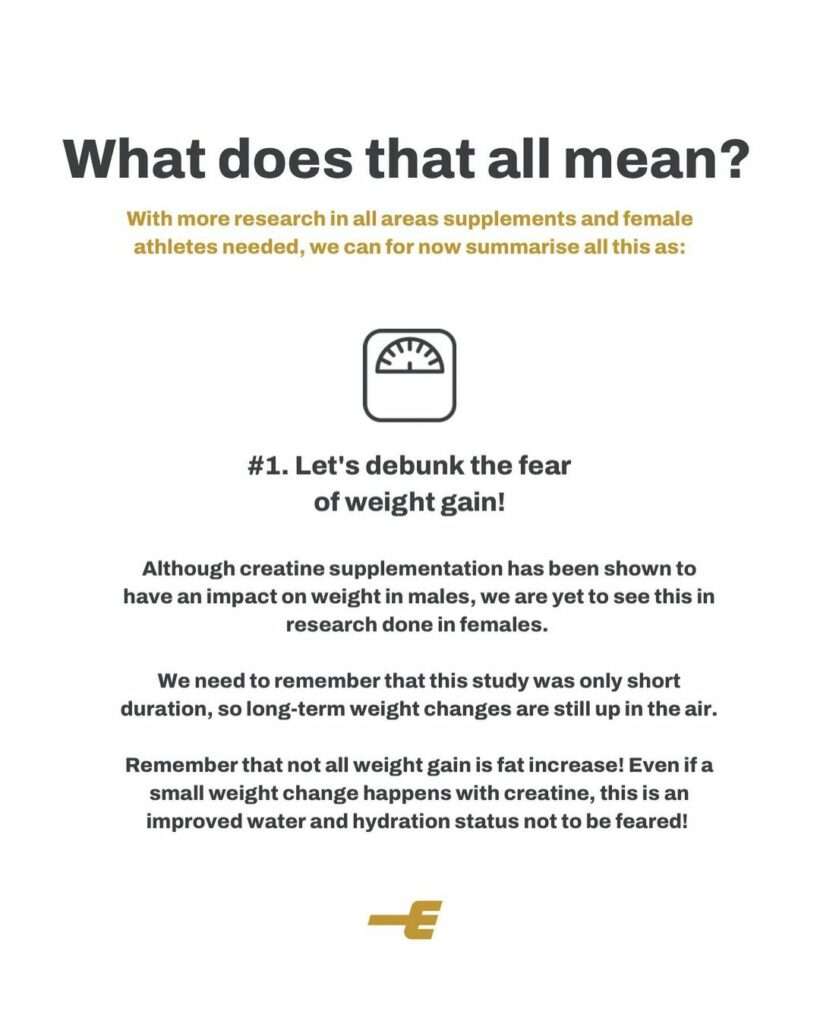
Creatine is a common dietary supplement that athletes and bodybuilders take to boost muscle mass and strength. Creatine is an amino acid present naturally in the body, but it can also be taken as a supplement. While creatine might aid in muscle growth, it can also lead to weight gain. This is because creatine stimulates muscular water retention, which raises overall body weight. Furthermore, some people may experience an increase in hunger when taking creatine, resulting in further weight gain. However, because creatine supplementation promotes greater protein synthesis, this extra weight is primarily muscle. As a result, while consuming creatine might cause weight gain, it is usually in the form of lean muscle tissue rather than fat.
Conclusion
Based on the evidence, it is possible to conclude that creatine does not directly aid in weight loss. It may provide some benefits for those looking to gain muscle mass, but those looking to lose weight or fat mass must use other methods such as diet and exercise. Creatine consumption may assist athletes who are training hard to achieve their fitness goals more quickly, but it is not a magic pill for weight loss. Those who want to lose weight should focus on eating a healthy diet and exercising on a regular basis.
ALSO READ
Fruit yogurt recipes for weight loss
Benefits Of Bilberry For Weight Loss

